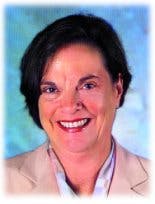The Centers for Medicare and Medicaid Services recently announced the start of an annual onsite survey of certificate of waiver laboratories enrolled in the CLIA program (Clinical Laboratory Improvement Amendments of 1988).
CMS expects to visit approximately 2 percent of certificate of waiver (COW) laboratories. The agency wants to confirm that these facilities are testing only within the scope of their certificate and are following manufacturers instructions for performing the testing. Surveyors will evaluate testing practices and provide technical assistance to laboratories where they find test quality concerns.
COW laboratories perform only tests that are determined by the Food and Drug Administration and the Centers for Disease Control and Prevention to be so simple that there is little risk of error. Currently, 40 tests have been approved for COW status.
To receive COW designation, laboratories must do three things: enroll in the CLIA program; pay applicable certificate fees biannually; and follow manufacturers test instructions. Over the last 10 years, the number of COW laboratories has steadily increased. In 1992, about 20 percent of laboratories were COW labs. In 2002, 54 percent have that designation.
The CMS survey follows up on an initial pilot study by the CLIA program in Colorado and Ohio in which onsite visits were made to a random sample of 200 COW and Provider Performed Microscopy Procedures laboratories. The government uncovered significant quality and certification programs in more than 50 percent of these laboratories.
After this initial pilot study, an expanded one was launched in eight additional states. Quality problems also were uncovered. It found, for example, that 32 percent of the labs surveyed failed to have current manufacturers instructions on hand; 32 percent didnt perform quality control as required by the manufacturer or CDC; and 16 percent failed to follow current manufacturers instructions. While the laboratories in this recently announced sample will be randomly selected, different types of laboratories will be surveyed, including those in physicians offices, community clinics, and nursing homes.
Participation in the survey is voluntary. CMS says laboratories will be notified in advance, first by letter and then by telephone to confirm the onsite visit. The visits will focus on the education of testing personnel to ensure quality testing.
In a letter to state surveyors who will be conducting the visits, CMS stated, If quality problems are found, the inspectors will provide assistance to the laboratories to achieve accurate and reliable results.
Further, CMS pointed out that preliminary follow up data from CMSs expanded pilot studies indicates that attempting to educate lab personnel in COW laboratories has been highly effective.
Surveyors are expected to spend from one to two hours performing the onsite survey. A discussion of the findings and information about how to correct any problems affecting test results will be provided at the end of the survey.
The nine-page survey includes about 20 questions. For example, surveyors will ask whether all the tests performed by the COW laboratory are classified as waived; whether there are problems with the manufacturers instructions, such as unclear or complex language; whether the lab is voluntarily enrolled in proficiency testing; and whether the laboratory ever received a complaint that involved waived testing.
While CMS stresses that the survey will be primarily educational, if any serious risk to human health remains uncorrected, further action may be taken. State surveyors also intend to re-visit a small number of the laboratories where problems have been found to ensure they are providing good quality testing. If the education effort isnt effective, CMS has said that it will work in conjunction with CDC and FDA to evaluate other alternatives.
In a related development, COLA plans to start an educational effort to assist COW laboratories. COLA is a nonprofit, physician-directed organization promoting quality and excellence in medicine and patient care through programs of voluntary education and accreditation. The program, which is still being developed, will include educational information on best laboratory practices.
Joan Szabo is a Washington, DC, freelance writer specializing in© 2002 Nelson Publishing, Inc. All rights reserved.



